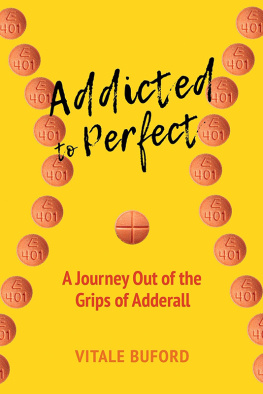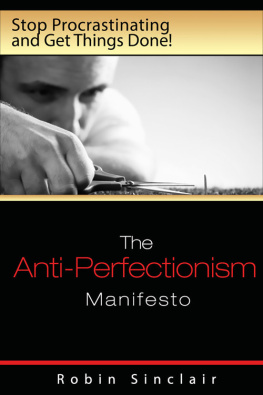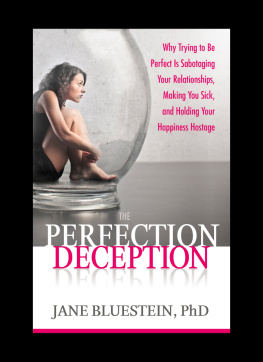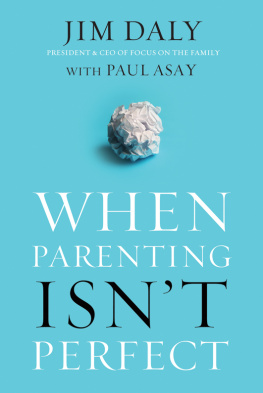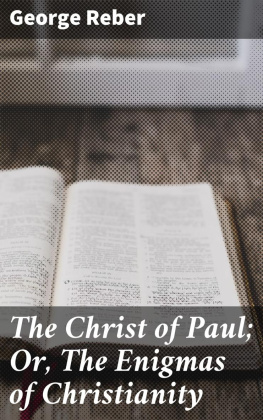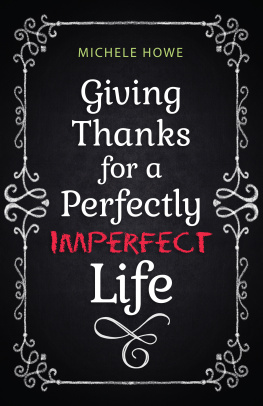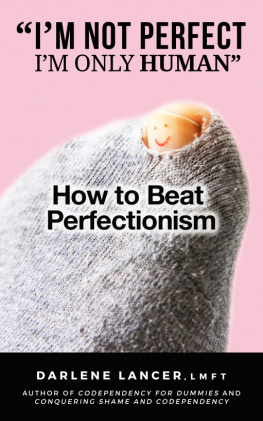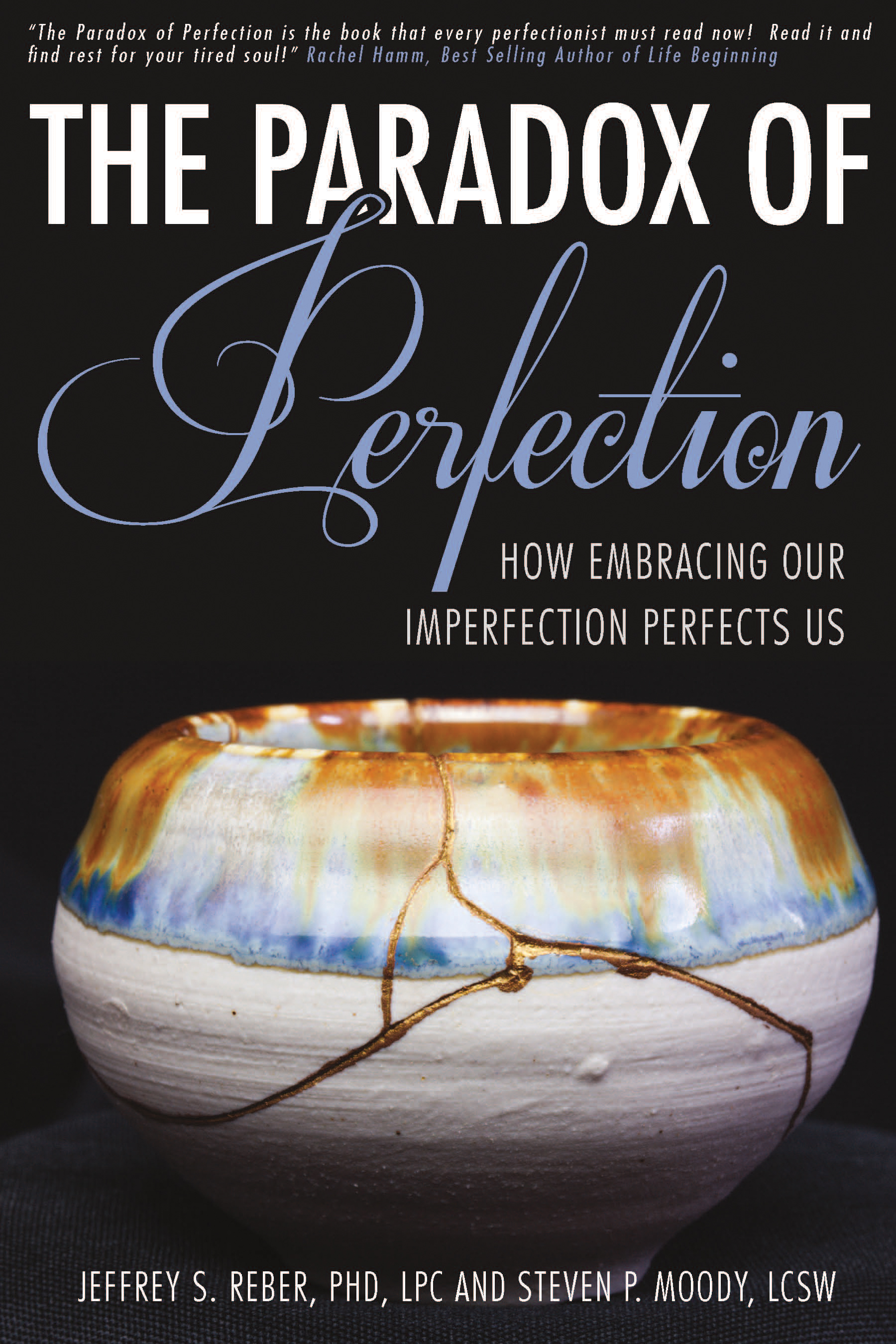THE PARADOX
OF PERFECTION
THE PARADOX
OF PERFECTION
HOW EMBRACING OUR
IMPERFECTION PERFECTS US
Jeffrey S. Reber, PhD, LPC
Steven P. Moody, LCSW
CrossLink Publishing
Copyright 2019 Jeffrey S. Reber and Steven P. Moody
All rights reserved. No part of this publication may be reproduced, distributed or transmitted in any form or by any means, including photocopying, recording, or other electronic or mechanical methods, without the prior written permission of the publisher, except in the case of brief quotations embodied in critical reviews and certain other noncommercial uses permitted by copyright law. For permission requests, write to the publisher, addressed Attention: Permissions Coordinator, at the address below.
CrossLink Publishing
1601 Mt. Rushmore Rd., Ste 3288
Rapid City, SD 57701
www.crosslinkpublishing.com
Ordering Information:
Quantity sales. Special discounts are available on quantity purchases by corporations, associations, and others. For details, contact the Special Sales Department at the address above.
The Paradox of Perfection/Reber & Moody 1st ed.
First edition: 10 9 8 7 6 5 4 3 2 1
All scripture quotations are taken from the Holy Bible, King James Version (Public Domain).
About the Cover
Kintsugi (or golden seams) is a centuries old art form that embraces the Japanese aesthetic philosophy of Wabi Sabi , which emphasizes the beauty of imperfection. Lacquer masters fill the cracks in broken ceramics with a golden lacquer that is sanded and polished until the joint is even and seamless, making the object whole and enhancing its beauty, strength, and value.
To our wives and our children, with whom we have been blessed to share precious moments of Gods perfect love.
Contents
Chapter 4: Toward a More Perfect
Marital Union
Introduction
W e begin with a confession: We are perfectionists. It is not easy to admit this publicly. Indeed, it is even harder to own up to the fact that we have often been perfectionistic as we have written this very book, which is designed to counteract perfectionism. These admissions are difficult for us, in part because perfectionism is itself an imperfection. It exposes a flaw in our character, and like all perfectionists, we do not want to have weaknesses and flawsand we certainly do not want other people to know about them!
On the contrary, even though we know better, even though we know flawlessness is a fantasy, we still want you to think we are perfect. In fact, we would like you to think that we just sat down in front of a computer, that a conduit of insight opened in our minds, and that we wrote this book in a few days as a single draft with no mistakes and no revisions in the process. Like so many of you, we want to appear as if everything comes naturally and easily to us, as if we are the Mozarts of book writing. Then we get to look like geniuses and you get to read a book that is flawless in its treatment of this critical issue. Could anything feel better than that?
The fact of the matter is that it has taken us years to create this book. We have written, revised, and rewritten the manuscript many times over. We have thrown out entire chapters, and we have labored over every single word. We have not seen eye to eye on every topic and theme, and we have run drafts by trusted colleagues and friends who have pointed out minor flaws that have led ustrue to our perfectionistic tendency to catastrophizeto question whether we were even capable of writing a book at all. We have felt incompetent, and we have considered giving up on this project many times.
In short, our perfectionism nearly sabotaged the publication of this book on perfectionism on several occasions! This is not an indictment of the book. On the contrary, we think this book contains several valuable insights and will be of use to many people. But it is not perfect. Like us, this book is flawed.
We have chosen to acknowledge these flaws in ourselves and our book, despite the hit our egos will take for it, to counter a cultural tendency toward the pretense of perfection. Perfectionism has perpetuated itself for so long and so successfully in our culture precisely because it leads so many people to prop up a facade of perfection (just look at any social media outlet, if you doubt this), and it forces into hiding the real feelings and thoughts we experience and from which so many of us suffer. It keeps us from talking honestly with each other about our flaws and our faults, and it engenders a false belief that others do not have imperfections or somehow do not struggle with their own imperfections the same way we do.
We cannot tell you how many times we have sat with clients in therapy who lament, Why cant I be like so-and-so? They dont have all these problems. They always have their act together. They are practically perfect. Little do they know that the very person they think is almost perfect was just in our office the day before, lamenting all their inadequacies, feeling like a failure, and comparing themselves to other people who appear perfect to them .
Despite the pressure to keep our weaknesses private, we hope you will participate with us in honestly and frankly reflecting upon our shared weakness of perfectionism, as well as the individual forms it takes in each of our lives. Such a genuine reflection will only succeed if we are communicating with the real you, the whole you,not only the you that you present to the world or the you that you would like to present to yourself, but also the you that tries to be completely honest with yourself and does not try to hide from aspects of yourself that are uncomfortable or embarrassing.
This honesty will take some effort because, as you will see in chapters 1 and 2, it is easy to deny perfectionism at a conscious level, while still clinging to it in the deepest recesses of our minds, hearts, and culture. Indeed, we know from our own experience how often we say the words to ourselves and others, Well, nobodys perfect! and we know how hard people work to convince themselves and others that they really believe what they are saying: that imperfection is okay; that it is normal to be an imperfect person, to have an imperfect marriage, to parent imperfectly, and to be a member of an imperfect community.
But if you are like us, that is not the whole story. It is not quite the true story. If you are like us, the real you thinks, Yes, nobodys perfect, but it would sure be a better world if everyone was perfect, or at least if I was perfect. In fact, I ought to be the exception to the rule. My marriage and my family ought to be the exception to the rule, as well. At the very least, my church should be perfect. Perfection should be possible. If I just work harder at it, I should be able to get there. If perfection is not truly possible, though, I should at least make it appear as if it is, as if I have somehow achieved it, in order to save face among my peers.
We warn you against these often subconscious forms of resistance to honest self-reflection, for they are at the heart of what we describe here as the double bind of perfectionism: First, as we will discuss in chapter 2, our perfectionism binds us to an ever-present painful awareness of the considerable distance between the ideal and ourselves. And second, we are bound by our perfectionism to maintain the appearance of perfection in order to save face in a culture in which perfection is so highly valued, knowing all the while that it is a mere facade. This contradiction between awareness and appearance leads us to feel like we are always imposters who could be exposed as frauds at any moment.


